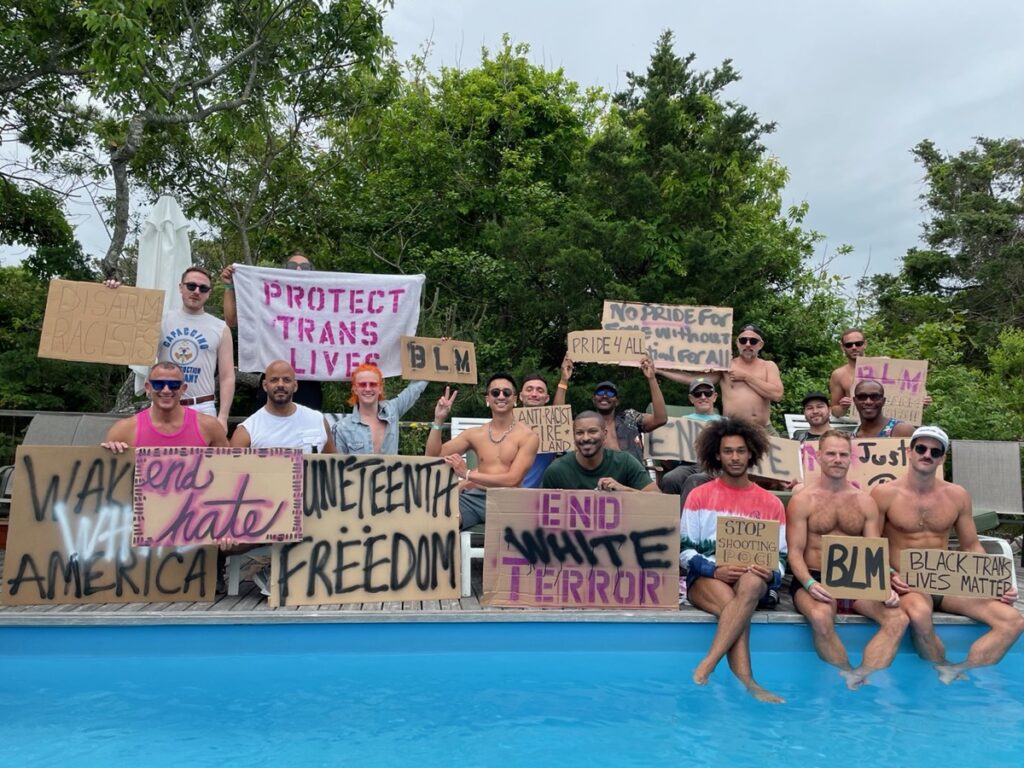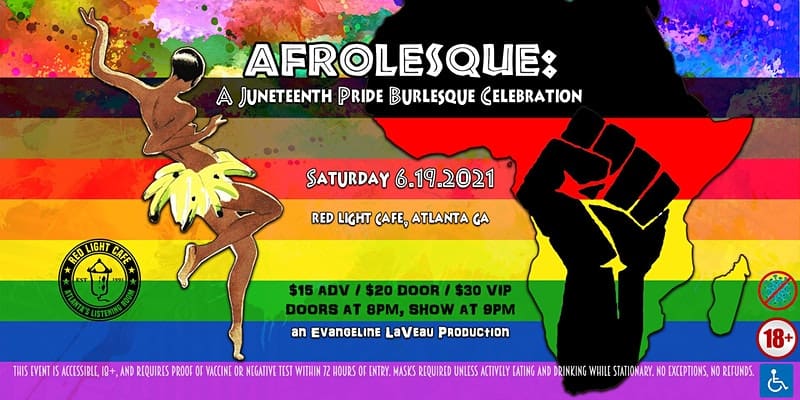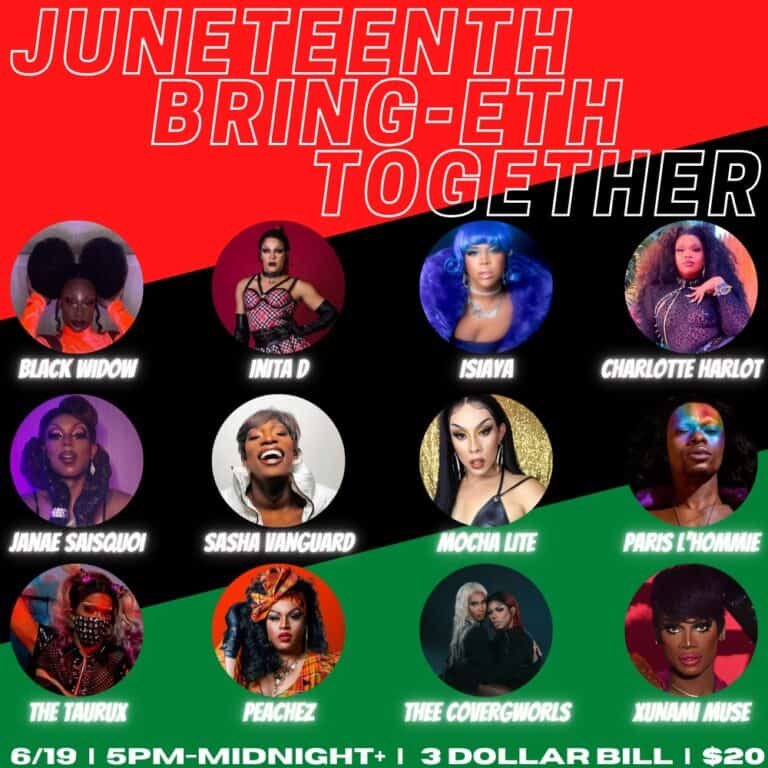
Juneteenth Holiday:
President Joe Biden's signature Thursday established Juneteenth as a federal holiday, the first new federal holiday since Martin Luther King Day received the same designation in 1983. Biden's signing of the bill, which passed through both houses of Congress with overwhelming support earlier in the week, memorializes when Black slaves in Galveston, Texas were informed of their freedom by Union soldiers on June 19, 1865, months after the Confederacy's surrender.
“Juneteenth has been known by many names: Jubilee Day, Freedom Day, Liberation Day, Emancipation Day and, today, a national holiday,” Vice President Kamala Harris said at a White House ceremonial bill signing. National holidays, Harris said, “are days when we as a nation have decided to stop and take stock, and often to acknowledge our history.”
‘a small, but significant, step towards an America that reflects its own diverse history,
Alphonso David, President HRC

President Biden, emphasized, “all Americans can feel the power of this day, and learn from our history, and celebrate progress and grapple with the distance we've come but the distance we have to travel.”
47 states and a number of cities across the country already recognized Juneteenth to varying degrees before Biden's push. The administration's push convinced Wisconsin Republican Ron Johnson to remove his longstanding block on the legislation and to be part of the unanimous Senate vote. In the House, 14 members, all Republican, all white, all men (just saying…) voted against making Juneteenth a federal holiday.
“Juneteenth being officially recognized as a National Holiday represents a small, but significant, step towards an America that reflects its own diverse history, one inextricably tied to and strengthened by the lives and legacies of Black Americans,” said Human Rights Campaign president Alphonso David. “Let's keep up this momentum.”
Juneteenth's new designation energizes planned celebrations in queer communities across the country scheduled for tomorrow, all locally organized, many with long histories, organizations behind them and devoted participants.
Atlanta is host to the ‘Afrolesque Juneteenth Pride Burlesque Celebration‘ and tons of events of queer interest — bar crawls, a fashion show, multiple markets and pop-ups featuring products by black-owned businesses, a bike ride and more.
Oakland's Queer Healing Arts Center will host a Juneteenth edition of its Back-to-Back Waack event alongside other Bay area events celebrating both Black and LGBTQ Pride. A separate event from Oakland Black Pride is scheduled for June 24-27.
Denver will host its first Black Pride celebration ever.
Harlem's Juneteenth Jubilee and Brooklyn's Juneteenth Bring-Eth Together provide Black queer communities throughout New York City with the world class entertainment and spaces. Campus Pride will host an online forum on Juneteenth's relationship with Black queer and trans populations.

Groups in New York and Boston's beach retreats have teamed up with the Black and Brown Equity Coalition to celebrate Juneteenth. In Fire Island you'll find salon conversations about race and equity, a restaurant takeover featuring cuisine that highlights the Black experience, drag pageant and a Beach Solidarity March (preparations pictured above.)
In Provincetown there will be a Pan-African Flag raising at the Pilgrim Monument Saturday morning. That's followed by a march west on Commercial Street to a home said to have been a safe house on the Underground Railroad.
Built to commemorate the Mayflower's first stop, Provincetown's monument is effectively one honoring the “birthplace of American colonization,” which makes the ceremony all the more powerful, according to organizers. After 400 years catering to certified descendants of that ship, Juneteenth celebrations have been welcomed with “full support from the Provincetown Museum,” a pivot with the times to an organization they say whose changed “mission of diversity, inclusion, and tolerance is to tell less-whitewashed stories at the landmark.”
These are the sorts of tortured kinks that many communities will be figuring out in the early years of this new holiday, with opportunities to heal, to be heard. But there's a big gap between communities that have celebrated Juneteenth for 158 years welcoming others with entirely different stories for twice as long and longer.
Small steps, indeed
Increased commitments to recognizing of Juneteenth, the country's history, Black queer communities carry plenty of resolve, but some Black activists and community leaders find Juneteenth's federal designation as somewhat hypocritical.
Texas governor Greg Abbott signed new law that prohibits teachers from discussing current events and critical race theory on the same day that the Juneteenth bill was unanimously past through the Senate. Maybe a little debate and discussion before voting might even be the point.
“Where is this progress? White people getting perks off the oppression of blacks is status quo. Let's stop lying to ourselves,”
Valarie Walker
Idaho, Iowa, Oklahoma and Tennessee have signed similar restrictions into law and 17 more have similar legislation circulating through their legislatures. The Root's Monique Judge on Twitter: “Imagine making Juneteenth a federal holiday when laws are being enacted all over the country that will prevent people from being taught why it's a holiday.”
“We keep being told that America isn't racist as America continues to do things that prove it is indeed racist, and when we speak out, we get Juneteenth as a federal holiday at the same time many states are making illegal to talk about how racist America is,” Judge added.
Among the black gay and queer organizers speaking to the paradox of events this week, Valarie Walker, the organizer of the Break the Chains: Justice Looks Like Love March scheduled for Juneteenth in Brooklyn, expressed displeasure that Facebook filled with “sign of progress” messages when Juneteenth was recognized as a holiday “Where is this progress? White people getting perks off the oppression of blacks is status quo. Let's stop lying to ourselves,” Walker said.
The bill's signing also brought up concerns that it will represent a “bookend” to a history of slavery and systemic racism that continues to persist in America, with some noting that forced enslavement as a form of criminal punishment is still preserved in the 13th Amendment. The amendment's language has allowed for forced labor in American prisons to remain legal.
Sen. Jeff Merkley and Rep. Nikema Williams told the Associated Press Friday that they plan to introduce legislation to formally revise the 13th Amendment to eliminate forced labor in prisons. “Our people have already been in chains and enslaved because of money,” Williams said. “We have to make sure that we are truly moving forward and not using money as a crutch of why we're continuing to perpetuate sins of our nation's founding and our nation's history.”



